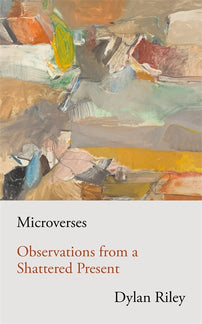Clean hands by Dylan Riley
"There are two great examples of the attempt to replace politics with what André Singer calls “the republican experiment (ensaio republicano)”: the Italian Mani pulite and the Brazilian Lava Jato. These were efforts to create a political movement on the basis of anticorruption. The first ended in the spectacular failure and inversion of the Berlusconi years. The second was a decisive cause of Bolsonaro’s rise."

Microverses comprises over a hundred short essays inviting us to think about society—and social theory—in new ways. Lockdown created the conditions for what Adorno once termed ‘enforced contemplation’. Dylan Riley responded with the tools of his trade, producing an extraordinary trail of notes exploring how critical sociology can speak to this troubled decade. For the first week of October, we'll be publishing an excerpt a day.
Clean hands.
There are two great examples of the attempt to replace politics with what André Singer calls “the republican experiment (ensaio republicano)”: the Italian Mani pulite and the Brazilian Lava Jato. These were efforts to create a political movement on the basis of anticorruption. The first ended in the spectacular failure and inversion of the Berlusconi years. The second was a decisive cause of Bolsonaro’s rise, and prior to that Dilma’s ouster. The two cases differed. Mani pulite attacked the entire political class of Italy’s “First Republic,” while Lava Jato, although paradoxically begun under Dilma, quickly transformed into an anti-Lulist project. But there is still a structural similarity between them. The “republican experiment” seems to emerge at moments when social democracy (if one can use this rather imprecise phrase to refer to Eurocommunism in Italy and the PT in Brazil) is in crisis. It becomes an alternative to the politics of redistribution. It as if to say, “Leave political programs aside and just ensure that politicians are not overtly corrupt.” But these juridical attacks seem by a sort of quasi-natural law to redound to the benefit of the right, because they reinforce the impression that all political authority is inherently corrupt and should thus be starved of resources. The right, in this way, benefits from the common-sense “Marxism” of the “man in the street.” Why should the executive committee of the bourgeoisie receive any further taxes? The task of the left is more difficult. It must, on the one hand, agree that the state is in thrall to the capitalists as a class, but on the other insist that a new sort of political order is possible. Hand washing and car washing will never answer the key question: “What kind of state?”
[book-strip index="1" style="buy"]
